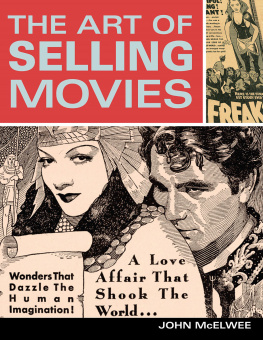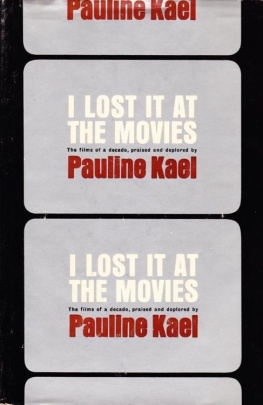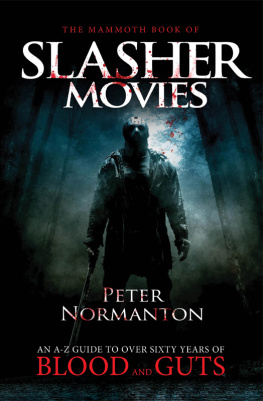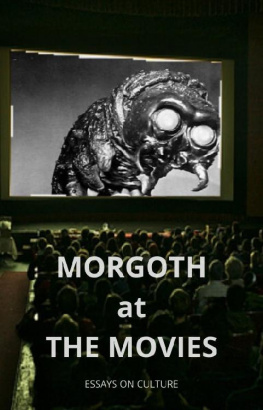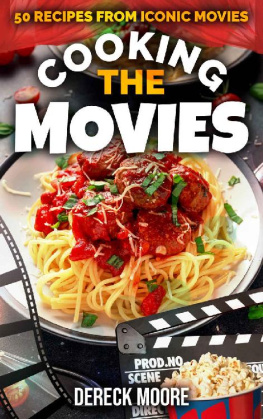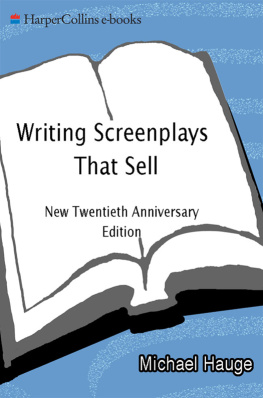McElwee - The Art of Selling Movies
Here you can read online McElwee - The Art of Selling Movies full text of the book (entire story) in english for free. Download pdf and epub, get meaning, cover and reviews about this ebook. year: 2017, publisher: Paladin Communications, genre: Non-fiction. Description of the work, (preface) as well as reviews are available. Best literature library LitArk.com created for fans of good reading and offers a wide selection of genres:
Romance novel
Science fiction
Adventure
Detective
Science
History
Home and family
Prose
Art
Politics
Computer
Non-fiction
Religion
Business
Children
Humor
Choose a favorite category and find really read worthwhile books. Enjoy immersion in the world of imagination, feel the emotions of the characters or learn something new for yourself, make an fascinating discovery.
- Book:The Art of Selling Movies
- Author:
- Publisher:Paladin Communications
- Genre:
- Year:2017
- Rating:4 / 5
- Favourites:Add to favourites
- Your mark:
- 80
- 1
- 2
- 3
- 4
- 5
The Art of Selling Movies: summary, description and annotation
We offer to read an annotation, description, summary or preface (depends on what the author of the book "The Art of Selling Movies" wrote himself). If you haven't found the necessary information about the book — write in the comments, we will try to find it.
The Art of Selling Movies — read online for free the complete book (whole text) full work
Below is the text of the book, divided by pages. System saving the place of the last page read, allows you to conveniently read the book "The Art of Selling Movies" online for free, without having to search again every time where you left off. Put a bookmark, and you can go to the page where you finished reading at any time.
Font size:
Interval:
Bookmark:
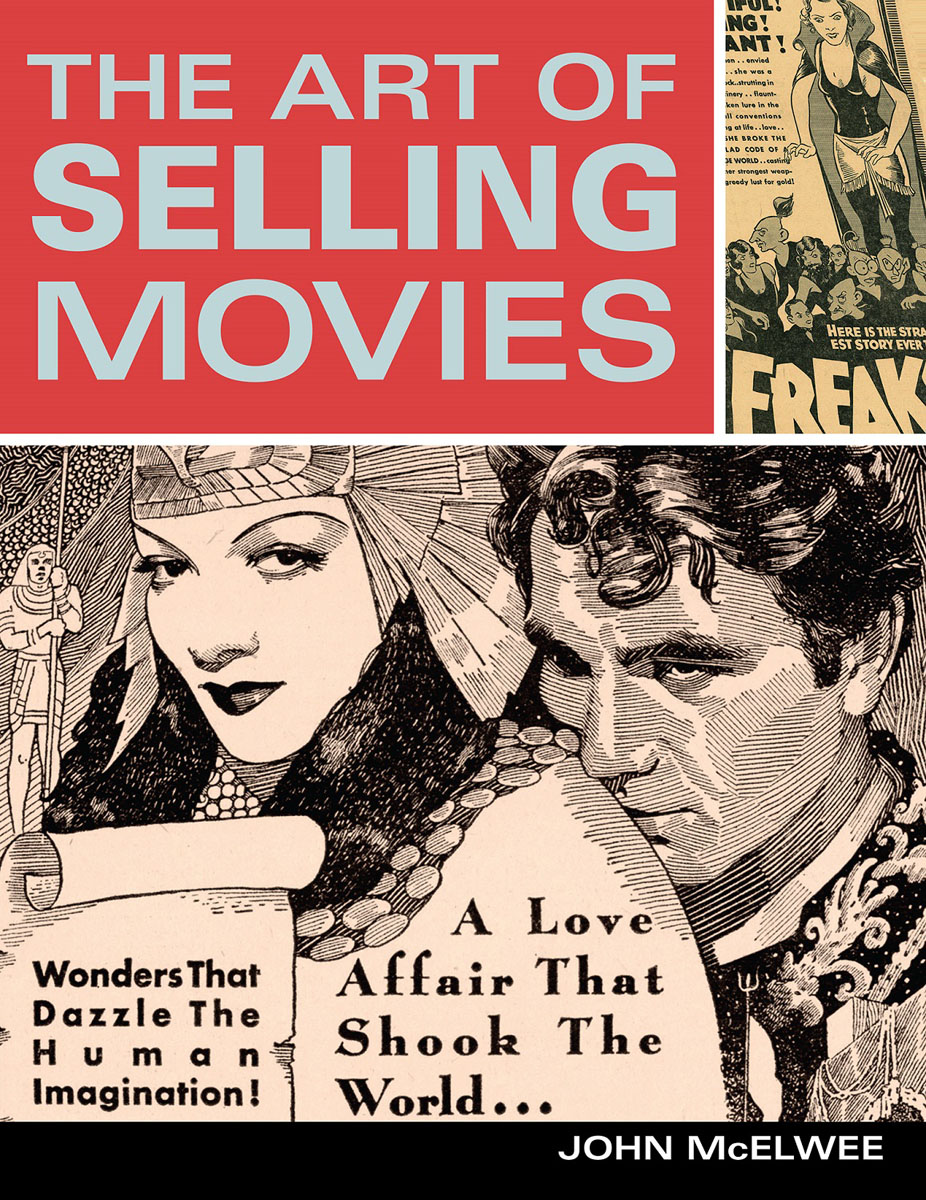

GoodKnight Books
2017 by John McElwee
All rights reserved. No part of this book may be reproduced or transmitted in any form or by any means, electronic or mechanical, including photocopying, or by an information storage and retrieval system without permission in writing from the publisher.
Published by GoodKnight Books, an imprint of Paladin Communications
Pittsburgh, Pennsylvania
Printed in the United States of America
First Edition
Library of Congress Control Number: 2016954734
ISBN: 978-0-9962740-4-3
ISBN: 978-0-9983763-3-2
ISBN: 978-0-9983763-4-9
ISBN: 978-0-9983763-5-6
Book and dust jacket design by Sharon Berk
To all fans, collectors, and movie lovers from the very beginning who saved theatre ads from newspapers. Whether in scrapbooks or file folders, or loose among torn tickets and diary entries, these mementos speak for joy of show-going during a vanished era when art plus enterprise made film promoting a daily and closely followed ritual in every corner of the United States. Ones who did the gathering are mostly gone, left little record even of who they were, but what theyd preserve and cherish then will hopefully be as meaningful for us now.
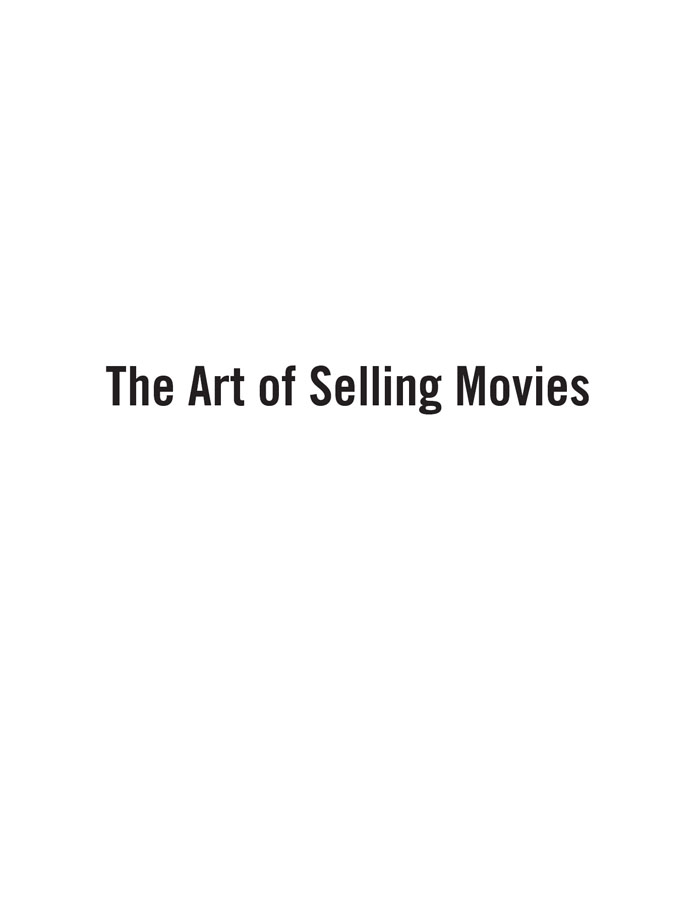

Imagine youve been hired to manage a theatre. Or maybe you bought one, and now comes the job of running it. As with any business, theres a learning process, details anyone of reasonable intelligence can learn and eventually apply. Heres the rub: Youre in showbusiness,a decidedly creative enterprise. You must appeal to sensibilities more complicated than neighbor merchants with their bread loaves and lawn mowers.
Advertising movie after movie calls for nonstop engagement of readers eyes plus penetration of minds, your platform a sliver of newspaper space. Folks wont attend just because your theatre is open and showing films. Plenty of venues, some on the same block, are doing as much. You have to sell your show but also take attendance away from other shows. Customers cant pay into two theatres at once, wont visit both on a same evening (but for far-gone fans), so theirs is to choose, and yours is to make sure they choose you.
No stress really, for it is only your livelihood at stake.
D uring the Classic Era (silents to mid-1960s) men and women with no aptitude for art had to become artists, wizards with words, master persuaders. Ad folk for other product rose to similar challenge, but they pitched tangible merchandise. Theatre operators sold a couple hours amusement, but gave customers nothing to carry home other than memories each hoped would be pleasant. Happy times were promised daily amidst heated competition on the Amusement Page.
Maybe they thought starting out that to run a theatre was simple as tearing tickets and popping corn. Being a wiz at projection or on-site displays went but so far, for sales were mostly closed in homes, on streetcars, at the barber shop or beauty salonwherever folks read newspapers. Theatre managers had to master print ads or hire someone who could. There was no third way, short of lost attendance and eventually shuttered doors.
This is not necessarily a movie book. Hundreds of movies are represented, but Im less for talking about them than about the skill, sometimes genius, of pulling paid admissions through a showmans entrance door. As exhibitor and MGM co-founder Marcus Loew famously said, We sell tickets to theatres, not movies. Loew understood it was entirety of the show that mattered, not just the feature, or even a feature with shorts. His operation and ones like it sold show-going as an event in itself, one that began not in the auditorium, the lobby, or even the decorated front, but with ads to promise attendees a happy night out.
Lets give great directors and iconic stars a rest, so that faceless folk who made them look good can take a bow. Ive wondered if industry players clipped and saved ads for films theyd made, or even saw such ads. It wouldnt have been easy keeping up with so many that were generated across a nation, make that a world, exposed to American films. And yet heres where people inside the picture industry could learn much about how their work was presented to a mass public. Much truth about the business was unique to theatre ads, those furthest from urban centers often the most illuminating.
Ads were crucial to success for not only a film theyd promote, but for future engagements of that same film. It often was a matter of creating the perception of a hit, being noticed by surrounding exhibitors whod then seek the allegedly proven product for their own house. Effective ads were seen by fans as well, many spreading word not only among neighbors but to neighboring towns.
It had not always been so. Newspaper ads took years to penetrate a selling landscape. Infancy saw movies coming and going too quick to benefit from print promotion. Add to that fact of few films lasting over a single reel or two. This was the case from introduction of cinema through a decade and a half that followed, an era where folks got in for a nickel and it hardly mattered what was onscreen, so long as it briefly amused. Storefront theatres changing programs daily werent tempted to spend for newspaper advertising. That would come with larger auditoriums, an emerging star system, and longer movies theyd dub features. Finish of a first decade of the 1900s saw motion pictures begin transition from nickelodeons to grandeur of urban palaces and even small towns seating patronage by the hundreds in comparative luxury. Newspapers had ignored the emerging art for simple reason that showmen werent so far buying ad space, so why take movies seriously?
Starlight Drive-In
My kind of town to grow up in and typical of ads I clipped from our local newspaper during the mid- 60s.
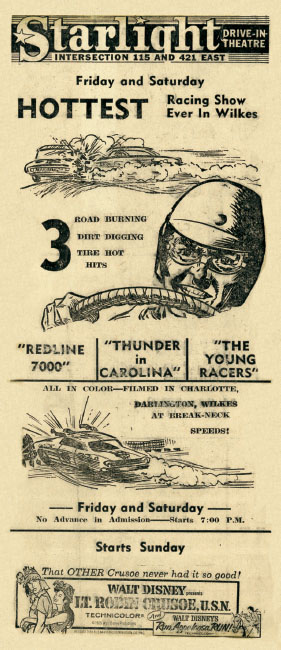
Arabesque
Pardon excess of scotch tape used for adding this Charlotte, North Carolina, ad from 1966 to my scrapbook, but how did I know it would be needed for this book a half century later?
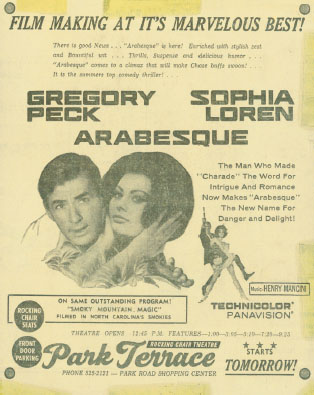
Film had to organize along industrial lines to truly make the grade. An audience captured nationwide was the essential, not mere locals pursuing a fad. Dollars spent for print ads would grease path toward making movies news. Nickelodeons had hooked enough of a public to demand media coverage for films and people who made them. Calendars turning from 1911 to 1912 saw rapid rise of interest in movie matters. Till then, it was trade publications spreading the word, but who among wider public sought these out? Now would come full-page reportage in many Sunday papers, daily mention elsewhere per reader demand, as films gained a mass following.
Ads in Context
Next pageFont size:
Interval:
Bookmark:
Similar books «The Art of Selling Movies»
Look at similar books to The Art of Selling Movies. We have selected literature similar in name and meaning in the hope of providing readers with more options to find new, interesting, not yet read works.
Discussion, reviews of the book The Art of Selling Movies and just readers' own opinions. Leave your comments, write what you think about the work, its meaning or the main characters. Specify what exactly you liked and what you didn't like, and why you think so.

